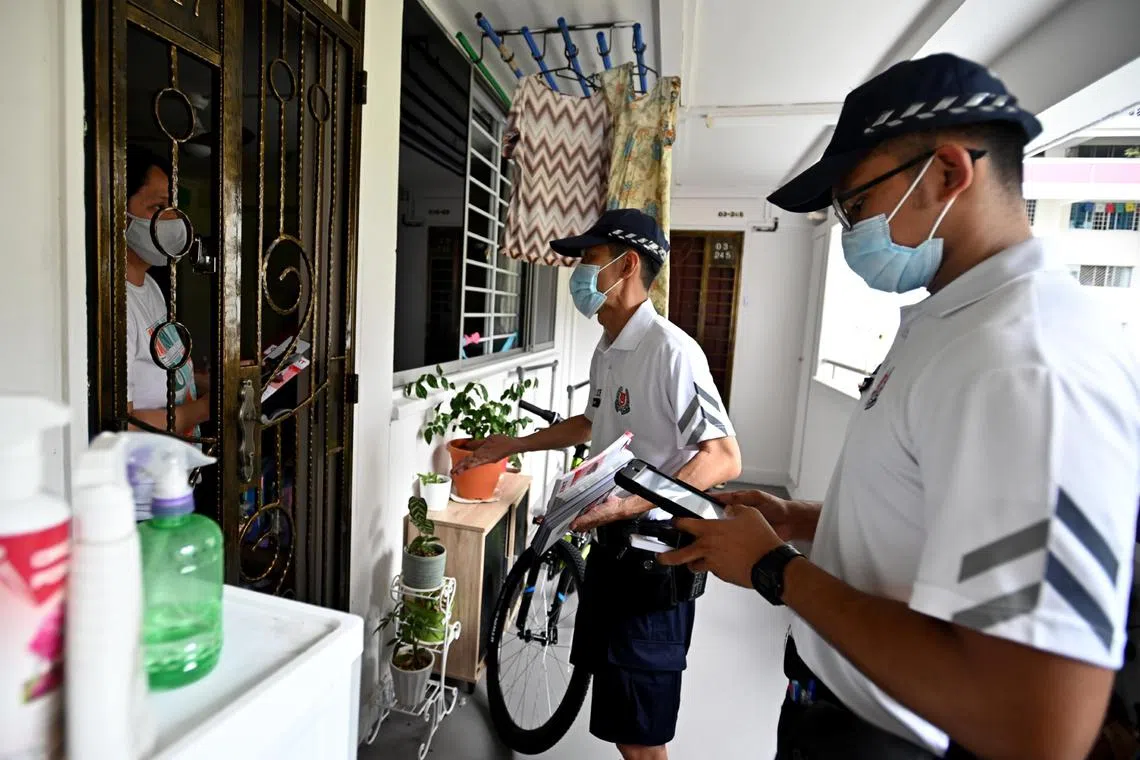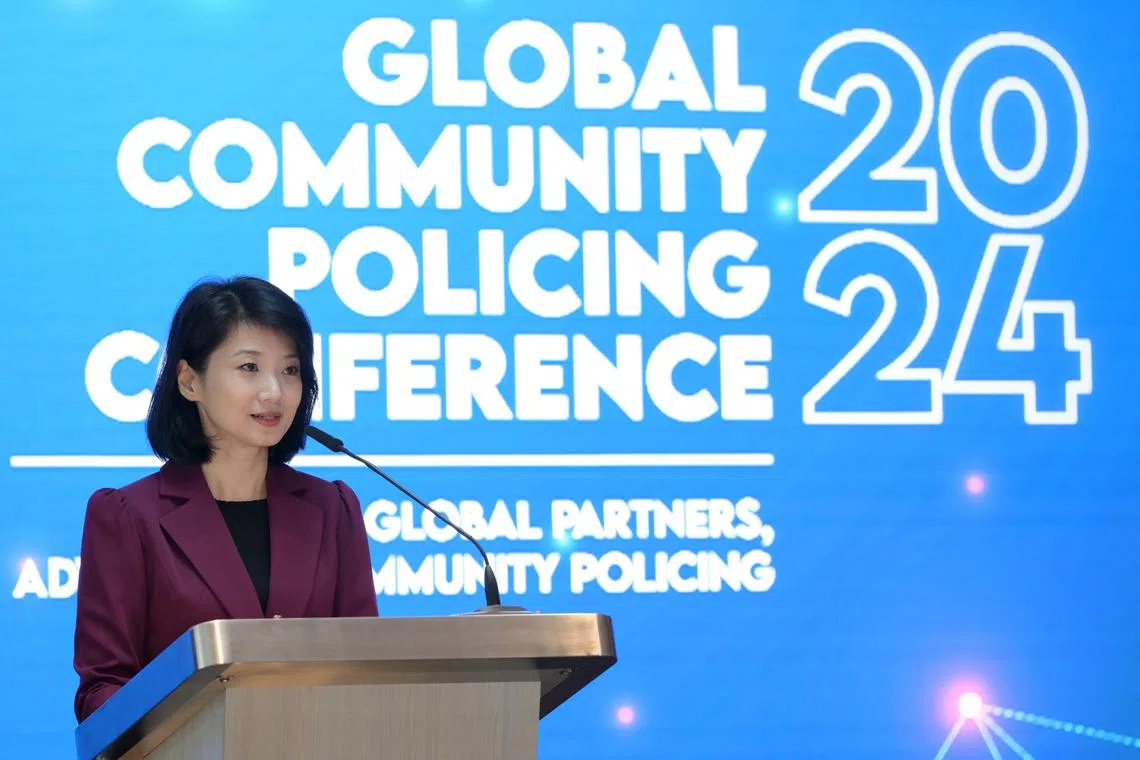Police forces must adapt and bring community policing into the online space: Sun Xueling
Sign up now: Get ST's newsletters delivered to your inbox

Community policing officers making home visits to educate residents about scams in March 2021.
ST PHOTO: LIM YAOHUI
SINGAPORE - Community policing has proven effective in increasing the perception of safety, reducing crime rates and improving public trust in law enforcement, but it must adapt and move into the online space as well.
Minister of State for Home Affairs Sun Xueling said the Singapore Police Force (SPF) has embarked on several community policing initiatives to enlist the public’s help to tackle issues such as cybercrime and scams.
They include the new Cyber Guardians on Watch programme,
Volunteers patrol cyberspace for potential criminal activity and alert the police or report suspected malicious activities to the digital platforms.
“Members of Cyber Guardians on Watch come from all walks of life to safeguard our cyberspace.
“Members will receive targeted cybercrime-related information, alerts and advisories from the police, and can help to amplify the message by sharing such information with their family and friends,” said Ms Sun, who was speaking on Aug 21 at the Global Community Policing Conference 2024.
The inaugural event, organised by SPF’s Community Partnership Department and held at Amara Singapore, will see 200 participants from global police forces, local government agencies and private-sector organisations.
They include officers from police forces in Rwanda, the Netherlands, Hong Kong and the United States, who will be taking part in seminars over three days from Aug 21.
Ms Sun said community policing has been an integral part of Singapore’s policing approach since the 1980s.
Adapting Japan’s Koban model, Singapore introduced the neighbourhood police post (NPP) in 1983.
“With the NPPs located within the residential heartland, police officers were able to organise neighbourhood watch programmes and crime prevention talks to engage residents and address their concerns.
“These initiatives fostered closer ties between the police and residents, contributing to falling crime rates and an increased sense of safety and security among the public,” Ms Sun added.

Minister of State for Home Affairs Sun Xueling speaking at the inaugural Global Community Policing Conference on Aug 21.
ST PHOTO: NG SOR LUAN
Community policing evolved over the years to include the neighbourhood police centre, which allowed police efforts to be decentralised.
It also included the voluntary special constabulary scheme, which comprises volunteers who serve alongside regular police officers.
Ms Sun said community policing can also play an important role in dealing with the threat of terrorism, and the aftermath of an attack.
In 2016, Singapore launched the SGSecure movement to sensitise, train and mobilise the community to play a part to prevent and deal with a terror attack.
Ms Sun said that at the heart of community policing is building trust between law enforcement and the community, which has become even more essential to effective policing in today’s interconnected world.
“Around the world, community policing has been shown to reduce crime rates, increase perceptions of safety, and improve public trust in law enforcement.
“When trust has been established, the public will be more willing to cooperate with the police and heed our advice to take precautionary measures to tackle crime,” she added.



